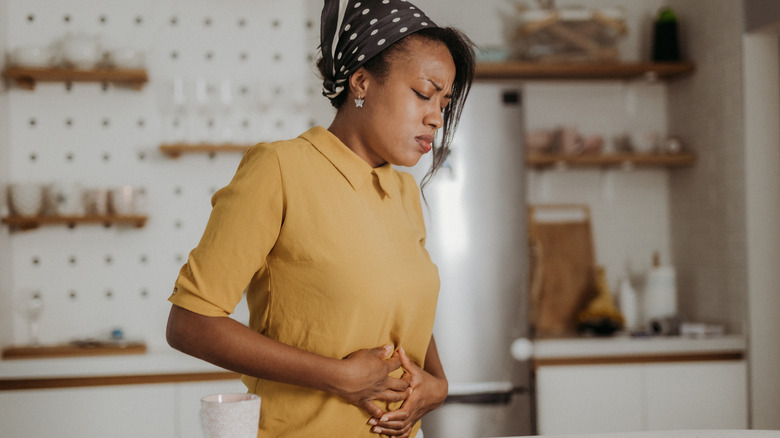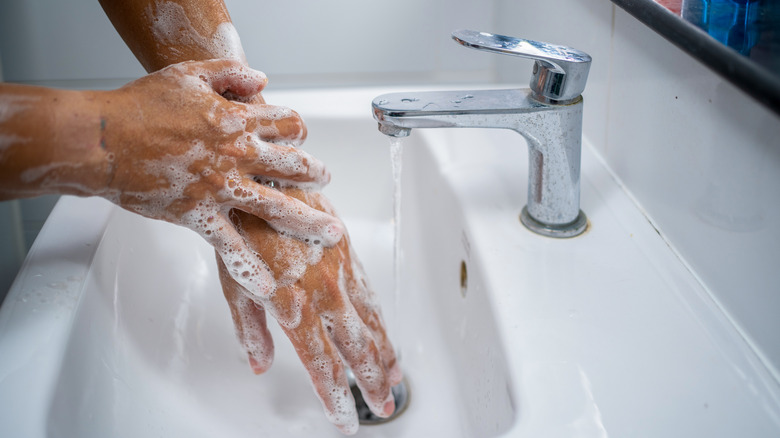Can You Get Norovirus More Than Once? We Explain
If you're hearing a lot about norovirus, it's because there are more norovirus outbreaks spanning the United States in the 2024-2025 season than in the past decade, according to the Centers for Disease Control and Prevention. Norovirus outbreaks are more likely to occur in places where many people congregate, like healthcare settings, schools, restaurants, and cruise ships. In fact, the CDC says there were 14 norovirus outbreaks on various cruise lines in 2024. Remember that an outbreak means at least two people became sick with norovirus, but it could mean more cases than that.
Many strains of norovirus can cause diarrhea and vomiting for a few days. Once you become infected, your immune system kicks in to fight the virus. After that, your immune system will protect you for a little less than six months from that particular strain of norovirus, according to The Conversation.
However, that doesn't mean you won't get sick from norovirus a few weeks after you recover. While your immune system gives you a few months of reinfection protection from one strain of norovirus, you could become infected with another strain.
Norovirus has many strains and variants that could make you sick
Many people learned a lot about virus strains and variants during the COVID-19 pandemic. The original COVID strain that arrived in the spring of 2020 mutated into different variants by the end of 2020. You might also remember the emergence of the Delta variant in 2021 and Omicron later that year. That one coronavirus strain – SARS-CoV-2 — is just one of many coronavirus strains.
Norovirus has 30 different strains, according to HHMI. Most norovirus outbreaks are attributed to the GII.4 strain. Like the SARS-CoV-2 coronavirus strain, the GII.4 can have different variants that can make you sick. You could have temporary immunity from one variant that made you sick, but you could come into contact with another variant that could get you sick again. The CDC tracks norovirus outbreaks and takes samples from infected people to monitor any new variants of norovirus. In a 2024 article in Emerging Infectious Diseases, researchers identified a new norovirus strain that affected people in San Francisco, South Africa, and the United Kingdom.
Preventing a norovirus infection
Norovirus is extremely contagious, and it just takes under 20 particles of norovirus to make you sick, according to HHMI. To put this into context, 5 billion particles of norovirus could be present in one gram of infected diarrhea. If you're sick with norovirus and don't wash your hands correctly, you could infect others if you touch their plate of food. You could also contaminate countertops and utensils. Although norovirus doesn't spread through respiratory droplets like COVID, it can become airborne if someone vomits. Small droplets can infect surfaces that people touch.
The American Medical Association says sushi, leafy greens, fruit, and raw shellfish can host norovirus, so be sure to give these foods a good rinse and be sure your seafood is thoroughly cooked. Norovirus outbreaks can occur when food service workers show up to work sick and don't wash their hands effectively. Your favorite sushi restaurant should show evidence of good cleaning practices, but you'll also need to be careful about ordering raw oysters at seafood restaurants.
Hand sanitizers don't work very well to protect against norovirus, so make sure your hands are clean when handling food, eating, or touching others. Wash your hands properly after going to the bathroom, preparing food, and eating. If you or a family member gets sick, norovirus can still infect others for two weeks after symptoms resolve. Use bleach or a strong disinfectant to clean your doorknobs, countertops, and other surfaces because norovirus could remain lurking on these surfaces for up to two weeks.


